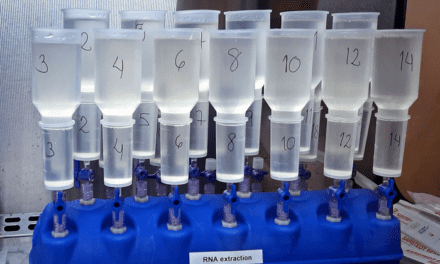Ulcerative colitis assessment could be improved after new research shows that an artificial intelligence model could predict flare-ups and complications after reading biopsies.
In a new paper published in Gastroenterology, researchers supported by the National Institute for Health and Care Research Birmingham Biomedical Research Centre have trialed an AI diagnostic tool that can read digitized biopsies taken during colonoscopy.
The computer-aided diagnostic model was able to predict the risk of flare-ups for ulcerative colitis, which is a relapsing-remitting condition and makes the prognosis for the disease uncertain. In the trial, the model was able to predict patients at risk of a flare in the disease as well as humans.
The system was trained on existing digitized biopsies and was able to detect activity related to ulcerative colitis with 89% accuracy for positive results. It was also able to identify markers of inflammation activity and healing in the same area as biopsies were taken with 80% accuracy, similar to human pathologists.
“The power of AI in healthcare is evident in trials like these, where a model can be used to standardize in real-time histological assessment of Ulcerative Colitis disease activity. But most importantly it provides analytical support and enables clinicians to support those at the greatest risk of relapsing symptoms and disease course,” says Professor Marietta Iacucci from the Institute of Immunology and Immunotherapy at the University of Birmingham and University College Cork in Ireland, and co-lead author of the paper. “Ulcerative Colitis is a complex condition to predict, and developing machine learning-derived systems to make this diagnostic job quicker and more accurate could be a game changer. As models like this further develop, the predictive quality is likely to improve even more, and our paper demonstrates how beneficial such technology could be for clinicians and, crucially patients.”





